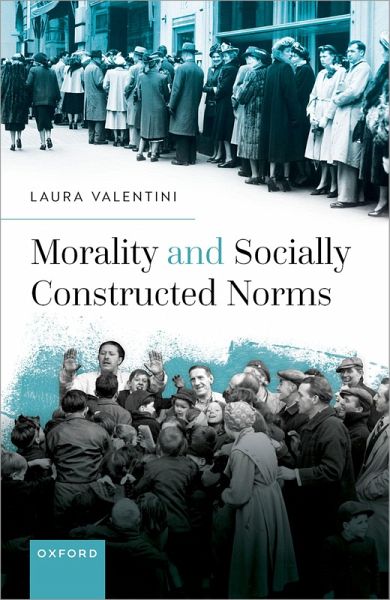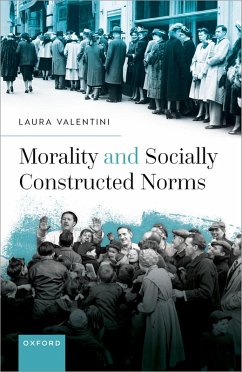
Morality and Socially Constructed Norms (eBook, PDF)
Versandkostenfrei!
Sofort per Download lieferbar
21,95 €
inkl. MwSt.
Weitere Ausgaben:

PAYBACK Punkte
11 °P sammeln!
Observe social distancing. Tip your waiter. Give priority to the elderly. Stop at the red light. Pay your taxes. Do not chew with your mouth open. These are imperatives we face every day, imposed upon us by norms that happen to be generally accepted in our environment. Call these 'socially constructed norms'. A constant presence in our lives, these norms elicit mixed feelings. On the one hand, we treat them as valid standards of behaviour and respond to their violation with emotions such disapproval, resentment, and guilt. On the other hand, we look at them with suspicion: after all, they are ...
Observe social distancing. Tip your waiter. Give priority to the elderly. Stop at the red light. Pay your taxes. Do not chew with your mouth open. These are imperatives we face every day, imposed upon us by norms that happen to be generally accepted in our environment. Call these 'socially constructed norms'. A constant presence in our lives, these norms elicit mixed feelings. On the one hand, we treat them as valid standards of behaviour and respond to their violation with emotions such disapproval, resentment, and guilt. On the other hand, we look at them with suspicion: after all, they are arbitrary human constructs that may contribute to oppression and injustice. In light of this ambivalence, it is important to have a criterion telling us when, if ever, we are morally bound by socially constructed norms and when we should instead disregard them. Morality and Socially Constructed Norms systematically develops such a criterion. It traces the moral significance of those norms to the agential commitments that underpin them, and explains why those commitments ought to be respected, provided the content of the corresponding norms is consistent with independent moral constraints. The book then explores the implications of this view for three core questions in moral, legal, and political philosophy: the grounding of moral rights, the obligation to obey the law, and the wrong of sovereignty violations. Morality and Socially Constructed Norms shows how much progress can be made in normative theorizing when we give socially constructed norms their (moral) due.
Dieser Download kann aus rechtlichen Gründen nur mit Rechnungsadresse in A, B, BG, CY, CZ, D, DK, EW, E, FIN, F, GR, HR, H, IRL, I, LT, L, LR, M, NL, PL, P, R, S, SLO, SK ausgeliefert werden.













